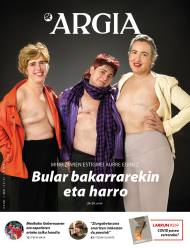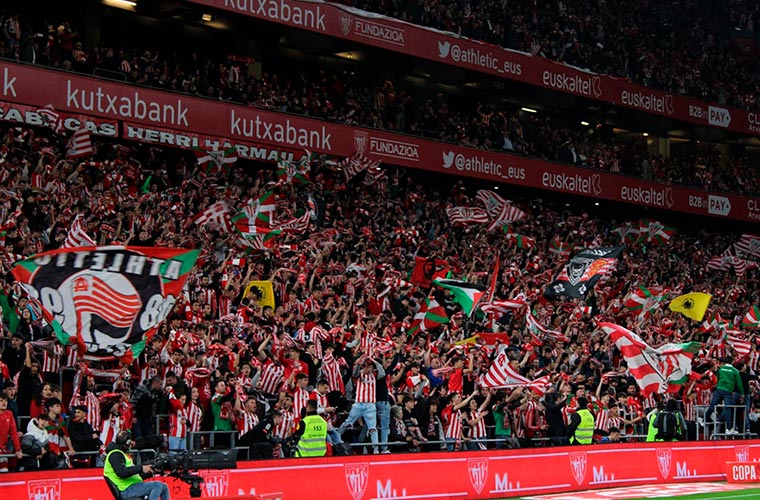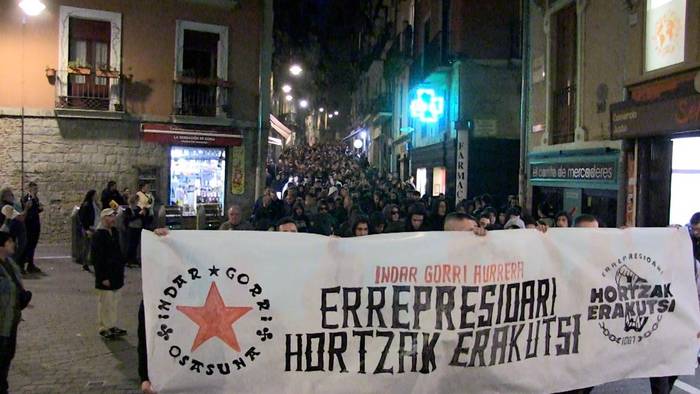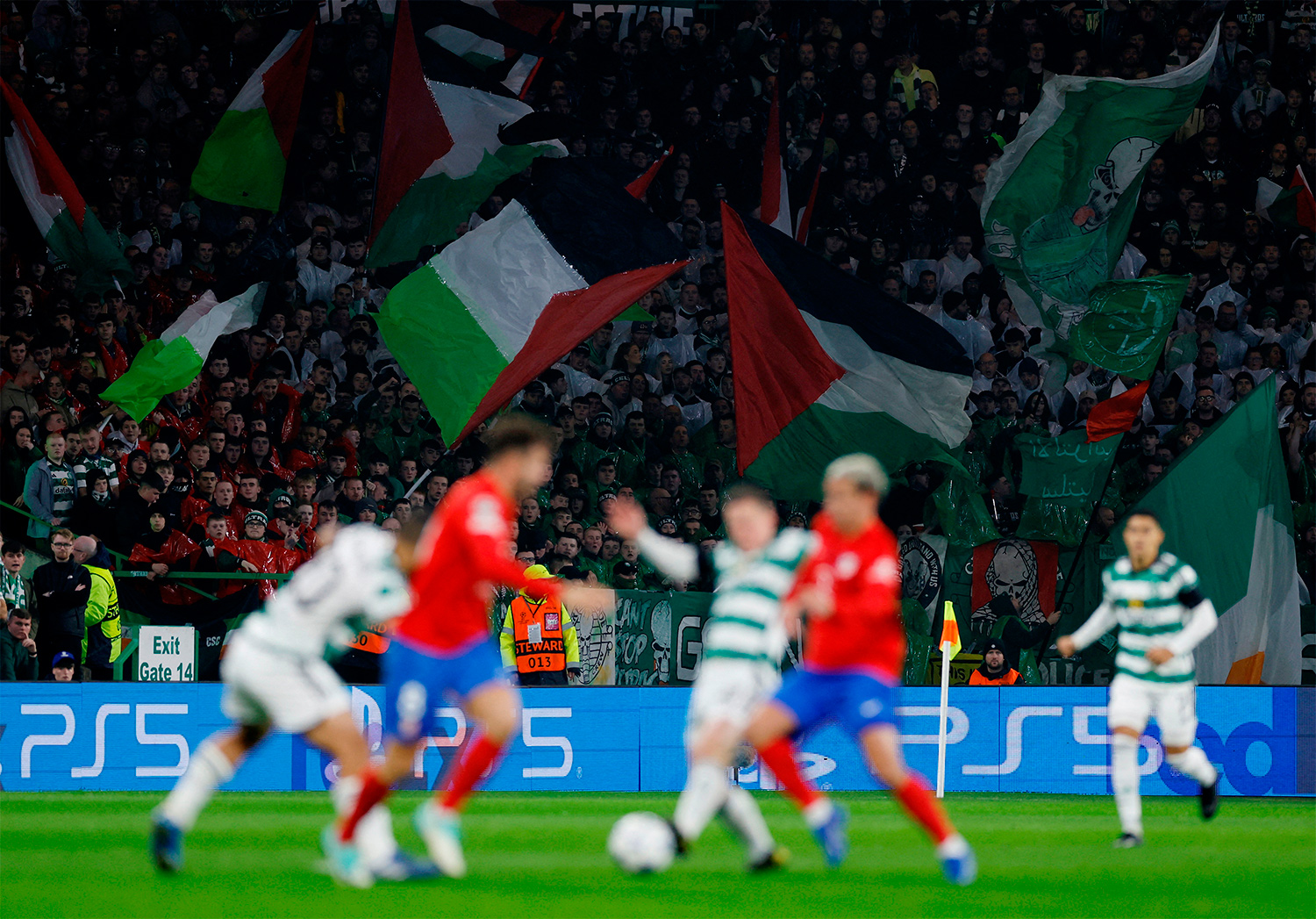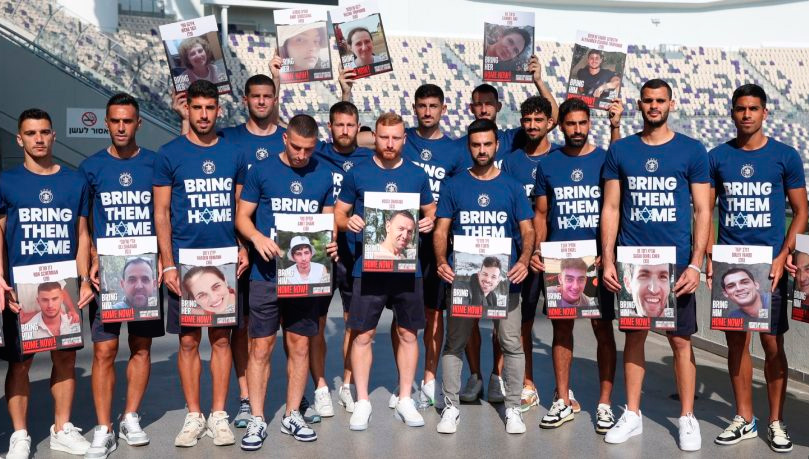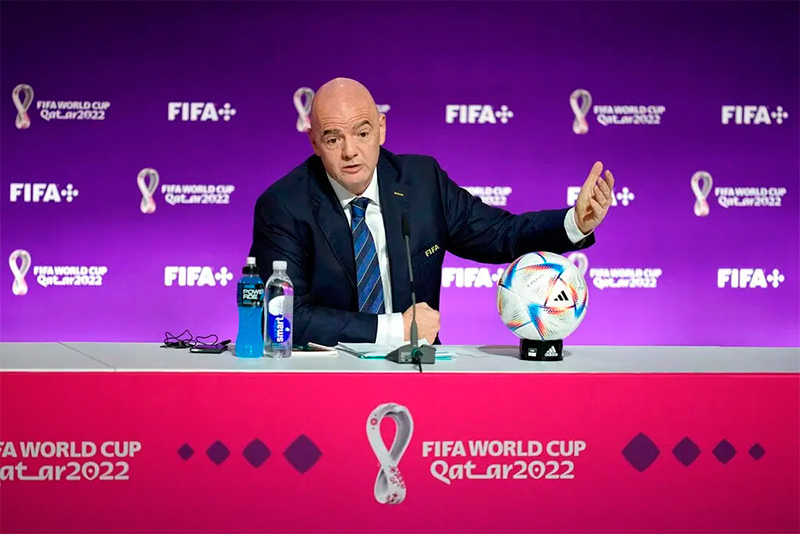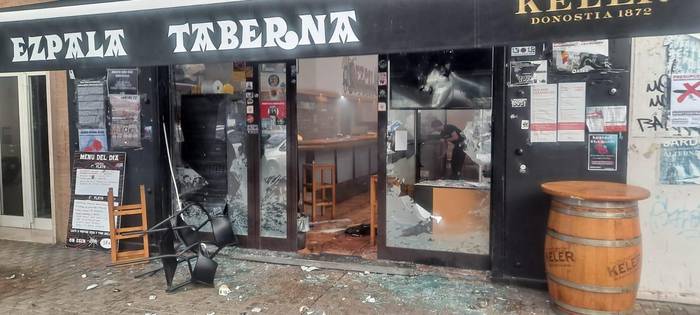Let the show of the dictatorship start
- There is less than a year left for Qatar’s Men’s World Cup to begin. The organisation of the next edition was awarded by FIFA on 2 December 2010, and from the outset the candidature has created a great stir. Many attribute to it that it is a trick to launder the dictatorship and, more worrying, several institutions have denounced the deaths of over 6,500 workers in the construction of stadiums and other infrastructures.
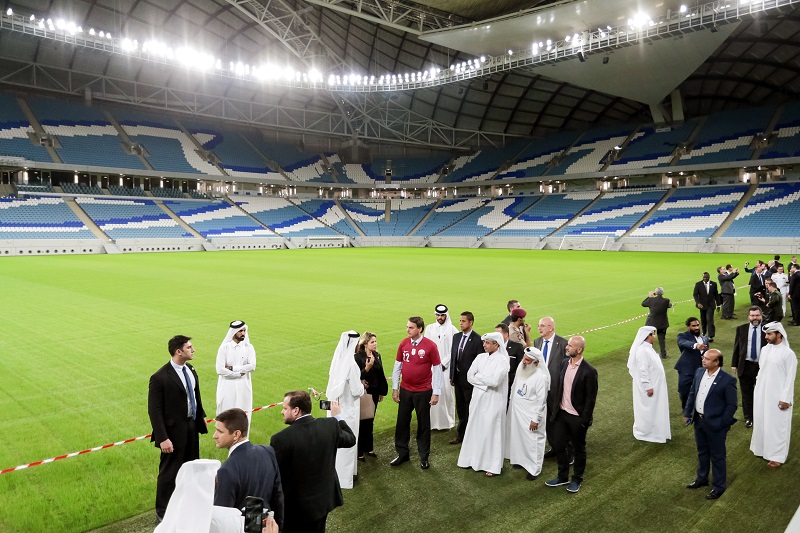
The controversy surrounding the presence of Qatar as a candidate for the organisation of the World Championship was due, on the one hand, to the fact that the country has no tradition in football and, on the other hand, to the extreme conditions of its climate that would force the international football calendar to be completely changed. Working conditions were also about to come, and many remembered that football was part of the strategy of whitening the dictatorship.
We're going to go back a little bit in time. Qatar has gained international weight for its oil wells. Of its minor importance, it has become one of the greatest powers in the Middle East. Before discovering oil and natural gas, their economy was based on fishing and pearl harvesting. In 1971 he achieved Britain’s independence and has since remained in the hands of members of the Al Tahni family.
The discovery of oil in the 1940s radically changed the country’s culture, customs, economy and demography. According to data from the United Nations, in 1960 47,383 people resided in Qatar, and ten years later, more than double, 109,521. The population growth rate continued until the end of the twentieth century, but grew even more at the beginning of the twenty-first century: In 2000, 594,000 people lived in Qatar, 1,715,000 in 2010 and 2,684,000 in 2020.
This exponential growth is mainly due to the number of migrants received by the country. At first they were going to work in oil refineries, and after the award of the World Championship in 2010, more people have gone to work on infrastructure construction works. Most of them come from Iran, Pakistan and India, which currently account for 80 per cent of the population. Most migrants are men, which has further decompensated demography: In Qatar there are 2,165,135 men and 715,925 women (25 per cent of the population).
Qatar is a country that has historically had little population, and football has had little weight. Thus, since December 2010, the authorities have invested heavily in the development of football to become a power. Several European players and coaches have been carried out to contribute to this development.
All the stadiums have been made from scratch, they have even had to create new cities. The final, for example, will be played in the city of Lusail, where it did not exist until 2005. To ensure the construction of all infrastructures, the State has made one of the largest investments in history: US$ 200 billion (about EUR 178 billion).
Slavery of the twenty-first century
Thousands of workers have travelled to Qatar from neighbouring countries, leaving their families, to construction sites. Skyscrapers, stadiums, hotels, training centers and roads have been built in every corner, and according to the report What is behind the Passion, published by the International Foundation for Democracy, 6,500 workers have died since 2010, with an average of twelve a week. A few weeks ago, several international media asked Qatar's Executive Director 2022, Nasser Al-Khater, about the dead workers, and he responded. “Dead? There are three, and everything else is false.”
In addition to insecurity, various associations and foundations in defence of human rights have denounced that workers suffer extreme working conditions, including sixteen and eighteen hours.
Workers still depend on the Kafala system. A “sponsor” or owner has full control over them
The Kafala system, used by almost all the countries of the Arabian Peninsula, has enabled migrants to go to work in Qatar. In short, people who wish to go to these countries need the authorisation of a “sponsor”, responsible for the visa and the legal status of the worker. Thus, these sponsors or owners have full control of the worker and, for example, if the migrant requests authorization to return to their family, they usually receive a refusal (previously they are “confiscated” by their sponsors for defining it in some way). When they want to change jobs they also have to ask their owner for permission (this term is more appropriate), and then it is almost always negative too. Human rights associations and foundations have defined slavery as a system.
Qatar began proceedings for the abolition of the Kafala system in 2017, and in August 2020 they passed laws for its repeal, but Amnesty International (AI) has denounced that this procedure has been paralyzed for a year and that the most cruel abuses have returned. The organization managed to talk to a worker and said that “paper changes” have remained in that: “When you enter a company you see that there has been little in terms of the conditions of the workers. The situation is still terrible.”
Football as a propaganda tool
Sport has always been an instrument of propaganda, it has been used by the States for their benefit. In the case of Qatar, the 2022 championship will allow the world to sell a positive image of itself. It's called Sportswashing through the image cleaning sport. The men’s world championship is one of the most viewed sports events, along with the Olympic Games and the European Champions League. The 2018 Russian World Championship final, for example, was seen by 1.120 million people, according to FIFA data, and 3.572 million people at some point saw a match in this edition.
Taking all of this global attention will help Qatar gain greater international recognition and weight. The country has strong geopolitical tensions with Saudi Arabia and the United Arab Emirates, and this international recognition de facto hinders a possible invasion of Saudi Arabia, as the vision of the world ' s major powers with good eyes Qatar creates allies to face a future diplomatic or war.
.jpg)
On the other hand, the economy so dependent on oil and natural gas is well-diversified and cushions the burden of raw material exploitation on gross domestic product. The Arab country therefore launched in 2008 the Qatar 2030 plan for the development of new economic sectors, in which sport, especially football, became very important. This economic diversification has an important responsibility for the development of these countries, if we bear in mind that the raw materials they exploit will one day end.
Opposing voices
There have been those who criticised the World Championship, but the messages against it have not spread as expected. A number of non-governmental actors and social movements have fought this gigantic event, but they have not gained much weight. In the world of football, no boycott message has been broadcast to Qatar 2022, as has happened at other sports events. The United States, for example, has launched a diplomatic campaign against the Beijing Winter Olympics, but they have not said a single euro about the Qatar championship.
Norwegian football players have been the only ones who have taken symbolic action against the extreme conditions suffered by workers in Qatar. In March of this year, in a qualifying match they went out to the field with the T-shirts that said “Respect: inside and outside the field”. In fact, last November, two Norwegian journalists who were reporting on the conditions of workers in Qatar joined for 32 hours.
Justifications
But Qatar's is not the only model of sportswashing. Some editions of the Spanish and Italian Super Cup have been disputed in Saudi Arabia and the 2018 Champions League final was disputed in Kiev, Ukraine, a country at war. There are more examples beyond football. In cycling, the first three stages of the Giro d'Italia of 2018 were held in Israel, the Netanyahu government paid around ten million euros to the organization of the Giro d'Italia and the streets of Jerusalem were filled with Israeli flags.
These countries also use another method to sell their positive image: buying clubs. The owners of PSG teams, Manchester City, New York City, and now Newcastle United are empowered men from Qatar, Saudi Arabia and the United Arab Emirates. Because of oil, these three countries are constantly growing and are among the richest countries in the world. They are gaining importance in the table of games and from the outset they have put in place strategies to achieve international recognition, including sport. And it seems that the goals are gradually being achieved.
Iñigo Cabacas Herri Harmaila taldea eta Athleticen arteko harremana nahaspilatuta dago azkenaldian. Iñigo Cabacas Herri Harmailako Iñigorekin hitz egiteko aukera izan dugu astelehenean.
A new student has come to school. It comes from Ireland. The mother of Bilbao and the Irish father of pure strain.
The girl does not know Basque but speaks perfectly Spanish. The teacher puts him on the blackboard to introduce himself to his new colleagues and, once finished,... [+]







